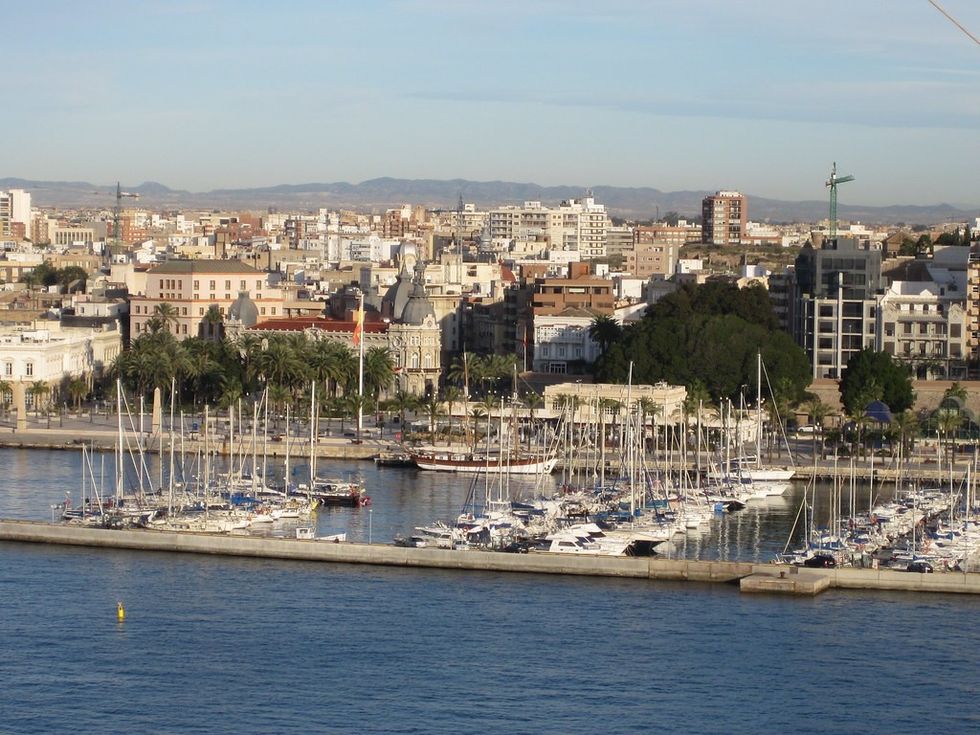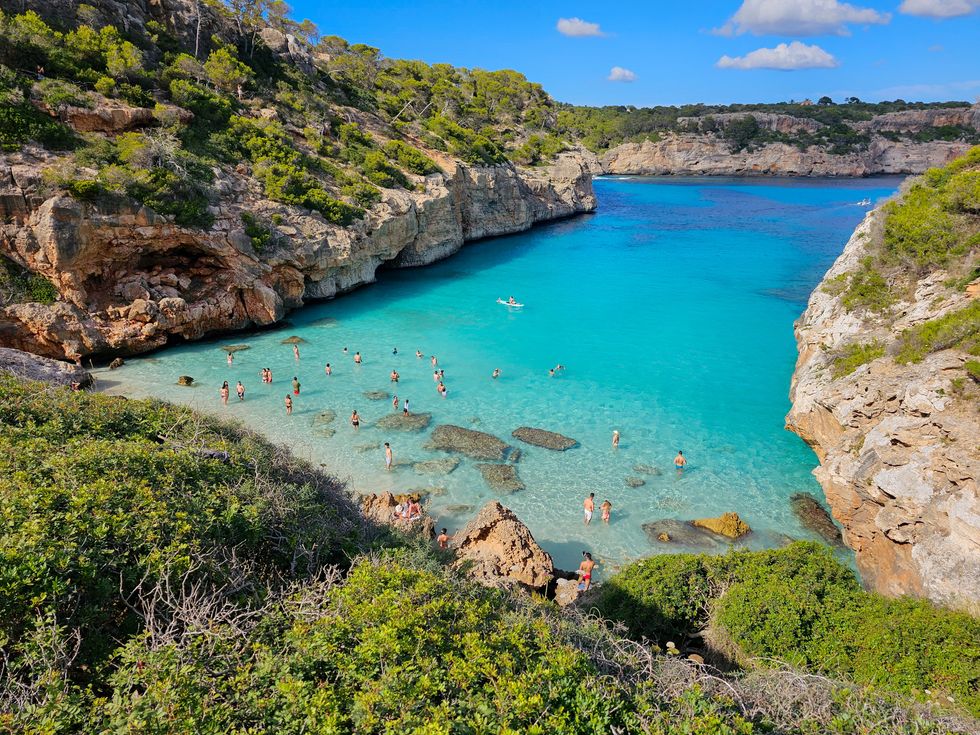Treasure-laden Roman shipwreck recovered off Spanish coast after 17 centuries on ocean floor
Jose A Moya/Arqueomallornauta - Consell de Mallorca, Universitat de Barcelona, Universidad de Cádiz, Universitat de les Illes Balears
Archaeologists have recovered 300 jars alongside coins and shoes
Don't Miss
Most Read
Trending on GB News
Treasure has been uncovered from a shipwreck dating back to the Roman-era, which was recovered after 17 centuries on the ocean floor.
The trading ship, which was carrying cargos of oil, wine, and fish sauces, was recovered near a tourist beach on the Spanish Mediterranean island of Mallorca in 2019.
Now, archaeologists have recovered 300 amphorae, a form of ancient ceramic jar or vase, decorated with more than 100 painted inscriptions, alongside coins and shoes from the wreck dating from the 4th century.
Previous research suggested that the ship, known as the Ses Fontanelles, originated near the Spanish port of Cartagena.

Previous research suggested that the ship originated near the Spanish port of Cartagena.
Flickr
Analysis from archaeologists has theorised that the vessel was likely heading for modern-day Italy.
The circumstances of its sinking are unknown.
“We found a ship that was mainly carrying a cargo of oil, with oil amphorae produced in the Cartagena area, fish sauces and wine,” Miguel Ángel Cau Ontiveros, an archaeologist from the Catalan Institution for Research and Advanced Studies, told El País.
He added that amphorae with over 100 preserved inscriptions are an “extremely rare” find.
LATEST DEVELOPMENTS:
A recent study published in the journal Archaeological and Anthropological Sciences, revealed that many of the 300 sealed pottery jugs in the ship's cargo contained fish sauce made from anchovies — a delicacy known in Latin as “liquamen”.
The ship was found in May 2019, by a local resident who would frequently swim in the area.
Cau said that due to the wreck lying in shallow water, it has been difficult to investigate due to the frequent crashing waves near the shore.
He believes the preservation of the wreck and its treasures was likely because the ship was buried by sand as soon as it sank.

The trading ship was recovered near a tourist beach on the Spanish Mediterranean island of Mallorca in 2019
Getty
Archaeologists are now trying to determine if the ship is of Byzantine origin from the reign of Constantine the Great.
Cau said: “We found a ritual coin in the cockpit, the hole where the main mast of the ship was placed. It is very interesting because it gives us a very precise date, it is from the time of Constantine, 320 AD, and it was minted in Siscia, an ancient Roman city located in modern-day Croatia.”
He added: “We do not know whether the coin is from the end of the Constantine era or whether it is related to the Church.”
Experts are planning to raise the wreck from the seabed.








